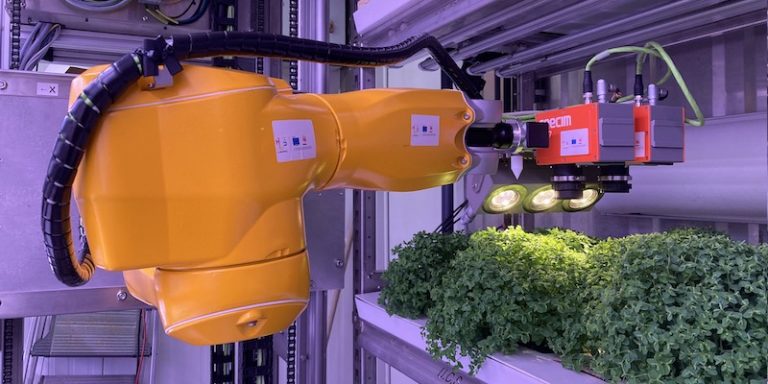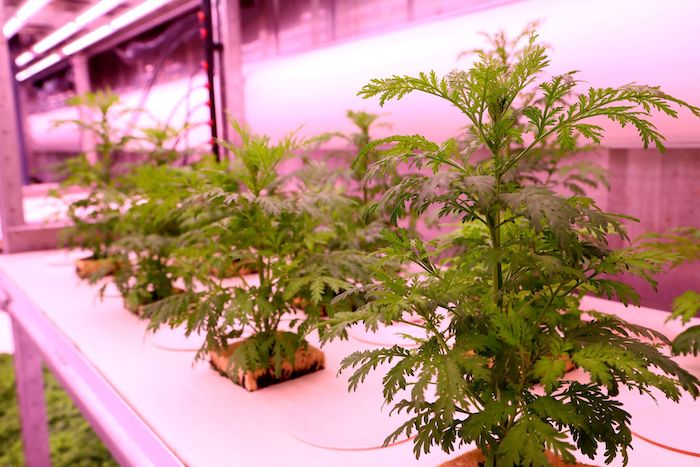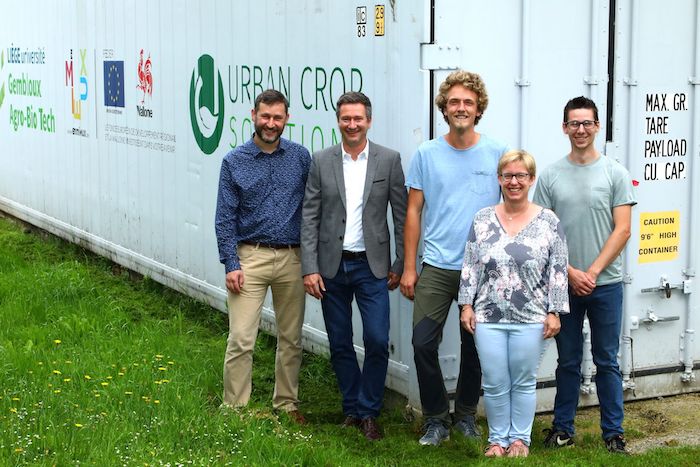
Launched in 2017 at Gembloux Agro-Bio Tech ULiège, the OptiBiomass project was focused on research in the pharmaceutical and parapharmaceutical sectors. Molecules of interest were studied until the COVID pandemic led to a reorientation of the research towards one plant in particular, mugwort. Artificial intelligence and robotics were then introduced to enable this project to play a role in Agriculture 4.0, in the service of man and life.
Pharmacy, parapharmacy, agronomy and agriculture 4.0 can lead to very interesting research. This is the case of the OptiBiomass project, initiated by Prof. Eric Haubruge at Gembloux Agro-Bio Tech ULiège, and which is part of a vast institutional research programme called Tropical Plant Factory. The project focuses on molecules of interest such as hemp, euphorbia, pelargonium and echinacea in order to extract the most efficient active ingredients.

In 2020, the study of mugwort, a plant with anti-malarial and antiviral properties in particular, was given priority in the COVID context. This agronomic project with added medical value has just been joined by artificial intelligence: a highly innovative robot has been installed in the mugwort crops of Gembloux Agro-Bio Tech ULiège.
The principle of this “Smart agriculture”? A robot, supplemented by two hyperspectral cameras and coupled with software, progresses among the crops. as Prof. Haïssam Jijakli, coordinator of the OptiBiomasse project, at the C-RAU (Centre de Recherches en Agriculture Urbaine), at Gembloux Agro-Bio Tech ULiège explains:
“That’s how innovative this installation is compared to the robotics-assisted crops that exist to date: before, the plants marched in front of a robot; now, the robot-camera-software trio moves among the crops. This type of versatile and mobile system no longer disturbs the plants. Moreover, this robot can not only make its way through tight spaces, but is also able to collect information that is still undetectable to the naked eye. It can, for example, quickly identify whether the plant is lacking in water and particular nutrients or whether it has reached the required degree of maturity before harvesting.
The study is neither open field nor open ground, but in containers and above ground. Among other advantages, the container provides an environment where various parameters such as light, relative humidity, irrigation, etc. can be controlled, thus placing the crops in a context of optimal yield from the outset. Moreover, the container offers the opportunity to grow these high value-added plants en masse and in a limited space. Finally, the hydroponic cultivation that is practiced in the container requires little water. Once all these optimal conditions are met and applied, the robot operates. This system is called “robotic phenotyping platform”.
 Since 2017, OptiBiomass research has been coordinated by Prof. Haïssam Jijakli, founder of C-RAU (Centre de Recherches en Agriculture Urbaine), at Gembloux Agro-Bio Tech ULiège. The agronomic aspect of OptiBiomasse is under the responsibility of Dr Françoise Bafort; the mechatronic aspect, under that of the physicist Jean-Jacques Lemaire, with the support of the SME MachineSight (integrator of special machines).
Since 2017, OptiBiomass research has been coordinated by Prof. Haïssam Jijakli, founder of C-RAU (Centre de Recherches en Agriculture Urbaine), at Gembloux Agro-Bio Tech ULiège. The agronomic aspect of OptiBiomasse is under the responsibility of Dr Françoise Bafort; the mechatronic aspect, under that of the physicist Jean-Jacques Lemaire, with the support of the SME MachineSight (integrator of special machines).
Currently at the premium level and in the hands of R&D, this technology will make it possible to identify efficient cultivation protocols. These will then be sent to farmers, particularly in urban and peri-urban areas. These producers could therefore make the most of unused spaces in the city or on the outskirts, or even consider growing crops where this would have been unlikely (polluted soils, industrial wasteland, etc.). This is a way of reappropriating space as accurately as possible, but also of rethinking one’s profession. This with the certainty of producing plants according to proven protocols, and with the aim of increasing productivity in the long term.
Translated from Focus sur OptiBiomasse, projet mêlant agronomie à valeur médicale ajoutée et intelligence artificielle









